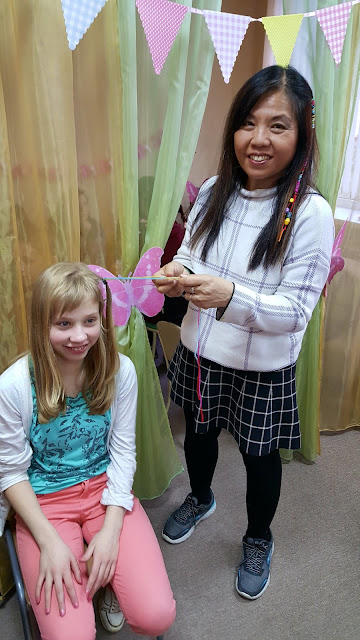I've just celebrated another birthday. I was in
Belarus at that time and there were no candles, no scrumptious dinner, no
family members, no presents and no cake. But the heart was still in the right
place because I would have already reached my full potential in Maslow’s
hierarchy of needs, which is self-actualization. In
self-actualization, a person comes to find a meaning to life that is important
to them.
Hoping to make a difference to the lives of orphans
and the neglected elderly I signed up as a volunteer for a week with PASHLI. "Pashli" is a Russian word meaning "Let's Go”.
The aim was to improve the living conditions and expand educational and social
opportunities within the target groups.
Most of us have a place to call our own. We have a home
where there is a mother and a father. But not the estimated 25000 Belarusian
children in state custody, according to Belarus Digest last year. These children
may be orphaned or have parents who are unfit to care for them due to alcohol
or drug addiction, crime or constant unemployment. In 2014, 2644 parents lost
custody to 3110 children.
When we stepped into the orphanage we were warmly
welcomed by a throng of children of all ages. They presented us with a
Belarusian cake and speech. It was heart-breaking to see them rush forward just
for a hug. We were possibly the only foreigners who cared enough to visit them
in months.
It was inevitable that throughout the week,
Maslow’s 5 tier pyramid of needs played on my mind constantly: basic needs
(physiological and safety) psychological needs (belongingness, love and esteem)
and finally self-fulfilment needs (self actualization).
Were basic needs met?
The thing that struck me at the orphanage was the lack of personal space
or privacy. There was hardly a time when a child could be alone. They were constantly surrounded by other
children or adults. Even the toilets do not have doors.
When I visited the science room they were so eager to show me the class
pets. There were beetles of various sizes living in a small plastic box. The
interesting thing was that the children let the creepy crawlies run all over
their fingers. It was the most natural thing to do . There was no aversion or squeamishness.
Most of us wouldn't purposefully engage in such an activity. It made me wonder
whether we modelled our fear after a significant adult.
One of the team members asked why the choice of beetles as pets rather
that the more conventional house pet like the cat? The answer was obvious. Low
maintenance – beetles need very little care or food. Were the orphans like
the beetles themselves suffering from little care or food?
Food was pretty basic. We had potatoes, chicken, meat patties and
pancakes for the week. The style of cooking was the same throughout the
week. If some of us wouldn’t want to see
another potato, chicken, meat patty or pancake after the week, imagine what the
children had to eat for everyday of their lives. I had less choices being a
pescatarian.
The team put up new ceilings, floors and painted walls and fence. Although
my forte would be around children and crafts I was roped in to put up a new
ceiling and also to sandpaper the walls. Having been on visits to bunkers and
pre-war buildings I was advised specifically not to touch the walls or inhale
the dust because of the toxic lead content. So that was a worrying issue.
At the old folks’ home I saw how the elderly were treated. The air stank
and even when I returned to my room after the visit, the smell lingered on my
clothes.
Were psychological needs met?
We had a pamper night for the teenage female orphans. They were treated
to girly stuff like hair wraps, comfort food, manicure and make-up. One of the
team members gave a talk on the importance of self-worth and respect.
As for the elderly, there were lots of tears on the last day that we
visited them. We called them Babushka (grandma) or Dedushka (grandpa). One
grandma hugged me so tightly and pressed into my hands a string of plastic beads
for me to keep so as not to forget her. It was one of the few possessions that
she had.
Were self-fulfilment needs met?
Statistics reveal that very few who start adult living
independently are success stories. Not being able to integrate well into
society, they fall between the cracks and crime rates reach up to 80% for such
children. Even when they become parents themselves, they end up sending their
children to orphanages. This perpetuates the ‘institutional’ cycle.’
Now I am a year older and a year happier,
doing the things that I like and being with the people that I love. But what
about the orphans, the babushkas and the dedushkas so many miles away? I
fell sick during the trip and it took me another week back in Ireland to
recover after the trip. It could be an accumulation of many things: the dust,
what I saw, what I felt and what I left behind.
THIS ARTICLE WAS ORIGINALLY PRINTED THE NEW STRAITS TIMES MALAYSIA 7 MAY 2017 http://www.nst.com.my/opinion/columnists/2017/05/237023/making-difference







No comments:
Post a Comment